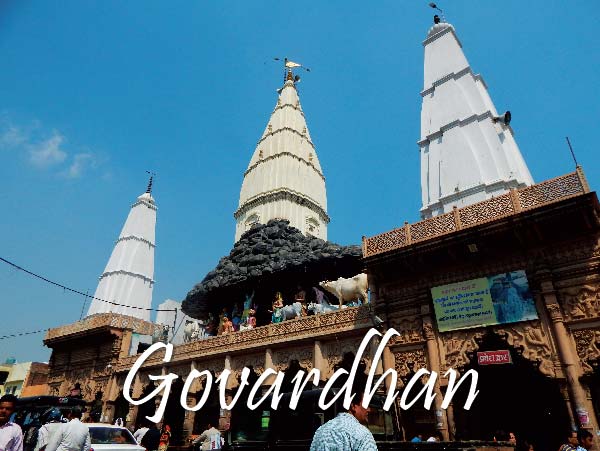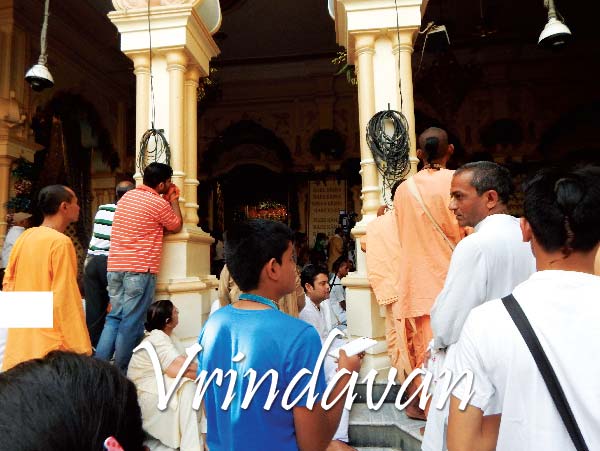
Maa Yashodha An embodiment of motherly love and affection.
Divine-human Relationship
Lord Krishna is a prominent deity in Hinduism and is considered an avatar (incarnation) of Lord Vishnu. He is revered as a supreme divine figure and is known for his various divine qualities, playful nature, wisdom, and divine leelas.
Lord Krishna is depicted as having a dark complexion and is often portrayed as a youthful and charming figure, with a peacock feather adorning his hair and a flute in his hand.
Lord Krishna is known for his role in the epic Mahabharata, where he serves as the charioteer and advisor to the Pandava prince Arjuna. He imparts the teachings of the Bhagavad Gita, a sacred scripture that provides profound spiritual wisdom and guidance.
Ma Yashodha, also known as Mother Yashoda, is the foster mother of Lord Krishna. She is considered an embodiment of motherly love and affection. In Hindu mythology, she is depicted as a devoted and loving mother who raised Lord Krishna as her own child in the village of Vrindavan.
Ma Yashodha is known for her endearing interactions with Lord Krishna. She is often portrayed engaged in playful and tender moments with him, such as feeding him, chastising him for his mischievous acts, and showering him with unconditional love and care. Her relationship with Lord Krishna exemplifies the deep bond between a mother and child, reflecting the divine love that exists between devotees and the divine.
The stories of Lord Krishna and Ma Yashodha highlight the divine-human relationship, emphasizing the loving and personal aspect of devotion in Hinduism. Lord Krishna’s playful interactions with Ma Yashodha serve as a reminder of the joy and love that can be experienced in a relationship with the divine.
Their relationship is filled with endearing and playful moments. Yashodha would often playfully scold Krishna for his mischievous acts, such as stealing butter or breaking pots. Despite his divine nature, Krishna would submit to his mother’s authority and display his innocence, allowing her to care for him and discipline him.
Yashodha’s motherly love and care for Krishna symbolize the pure love that exists between a devotee and the divine. It demonstrates the intimate and personal aspect of the divine-human relationship, emphasizing the accessibility of God’s love to all beings.
Krishna, in turn, reciprocates Yashodha’s love with great affection. He willingly engages in their playful exchanges and cherishes her as his beloved mother. Krishna’s interactions with Yashodha exemplify his appreciation for her devotion and his acknowledgement of her role in his life.
The relationship between Krishna and Yashodha teaches the devotees about the depth of love and the importance of a loving bond with God. It reflects the notion that God, in his infinite compassion, assumes various relationships to fulfill the devotees’ longing for a personal connection.
Yashodha’s love for Krishna serves as an example for devotees to cultivate a similar depth of devotion and surrender to God. It shows that the love of a devotee, akin to a mother’s love for her child, can invoke divine grace and blessings.
Overall, the relationship between Shri Krishna and his mother Yashodha represents the purest form of love, trust, and devotion. It stands as a reminder of the divine’s infinite love and the potential for every individual to establish a personal, loving relationship with God.
Brajbhoomi Temples Famous Temples of Brajbhoomi.
Braj Bhoomi, is home to several famous temples that attract devotees from all over the world. The Shri Krishna Janmabhoomi Temple in Mathura is the birthplace of Lord Krishna and a major pilgrimage site. In Vrindavan, the Banke Bihari Temple, ISKCON Temple, and Prem Mandir showcase the devotion and love for Lord Krishna. The Radha Raman Temple and Radha Vallabh Temple are also revered places of worship.
Radha Rani Temple Barsana
Mansi Ganga Temple Govardhan
Daan Ghati Temple Govardhan
ISKCON Temple Vrindavan





